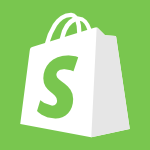As an experienced dropshipper, I’ve seen many e-commerce tools come and go. Oberlo, once a top choice for Shopify dropshipping, is no longer available, leaving many sellers wondering if it’s still on Shopify. This change has left store owners, myself included, searching for new options.
In this article, I’ll share what happened with Oberlo, how it affects Shopify users, and highlight the best alternatives to keep your dropshipping business going strong.
Whether you’re a seasoned seller or just starting, you’ll find helpful tips to adapt to this new dropshipping world.
History And Current Status Of Oberlo
Oberlo burst onto the scene in 2015, quickly becoming a favorite among drop shippers. Its main draw? Simplifying the often complex process of finding products and managing inventory.
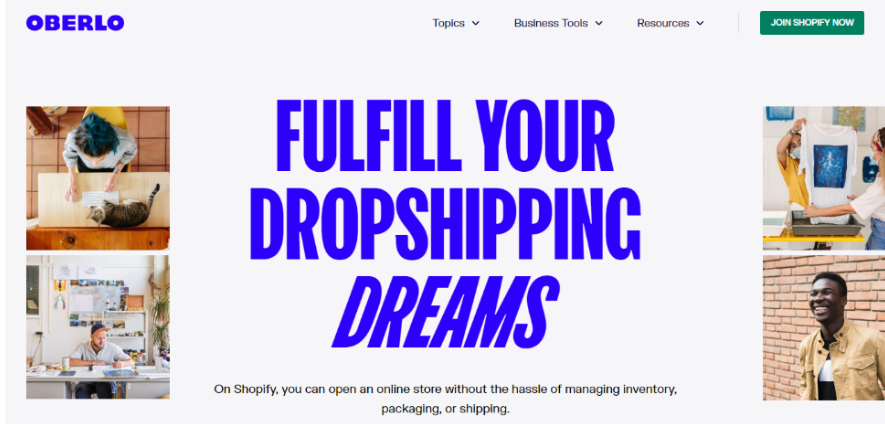
Here’s what made Oberlo stand out:
- One-click product imports from AliExpress
- Automated order fulfillment
- Real-time inventory tracking
For many of us, Oberlo was the secret sauce that helped turn our Shopify stores from side hustles into thriving businesses. It played a crucial role in the dropshipping ecosystem, bridging the gap between suppliers and store owners.
However, the e-commerce world moved fast, and Oberlo’s story ended unexpectedly. Shopify announced the shutdown in May 2022, giving users until June 15, 2022, to transition away from the app.
Why Did Oberlo Shut Down?
The exact reasons weren’t fully disclosed, but here are some likely factors:
- In favor of a more efficient dropshipping solution.
- Changes in the dropshipping landscape and increased competition
Impact Of Oberlo Shutting On Shopify Users
The shutdown of Oberlo has had both immediate and long-term effects on Shopify store owners.
Immediate effects:
- Loss of access to Oberlo’s product database
- Immediate need to find alternative ways to fulfill existing orders
- Potential disruption in inventory management
Long-term implications:
- Diversification of dropshipping tools
- Increased focus on building relationships with suppliers
- Exploration of alternative business models within e-commerce
While disruptive, this change also pushed many store owners to explore new options and potentially improve their businesses in the long run.
4 Alternatives To Oberlo
With Oberlo’s departure, several alternatives have filled the gap. Let’s explore some of the top options:
| Alternative | Differences To Oberlo | Similarities To Oberlo | Pricing |
|---|---|---|---|
| DSers | Advanced features like multiple store management | Seamless integration with Shopify | $19.9/mo |
| Spocket | Focus on US/EU suppliers, branded invoicing | Connects with Shopify for dropshipping | $39.99/mo |
| Printful | Custom product creation, no reselling | Automated order fulfillment | Free |
| Yakkyofy | AI-powered research, multiple sourcing options | Price and stock synchronization | $79/mo |
1. DSers
DSers is often considered the official successor to Oberlo, as it’s the solution Shopify recommended during the transition.
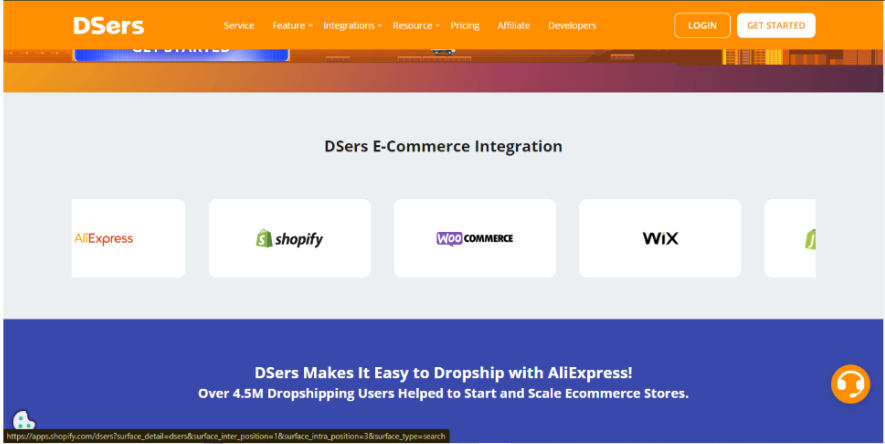
Features and benefits:
- Bulk order processing
- Automated pricing rules
- Supplier optimization
- Multiple store management
Comparison with Oberlo: DSers offers functionality similar to Oberlo but with some advanced features like managing multiple stores from one account.
User experiences and reviews: Many users praise DSers for its smooth transition from Oberlo and its user-friendly interface. However, some miss certain Oberlo features.
Pros:
- Seamless integration with Shopify
- Advanced automation features
- Free plan available
Cons:
- The learning curve for ex-Oberlo users
- Some advanced features are only available on paid plans
2. Spocket
Spocket focuses on connecting drop shippers with US and EU suppliers, offering faster shipping times compared to AliExpress.
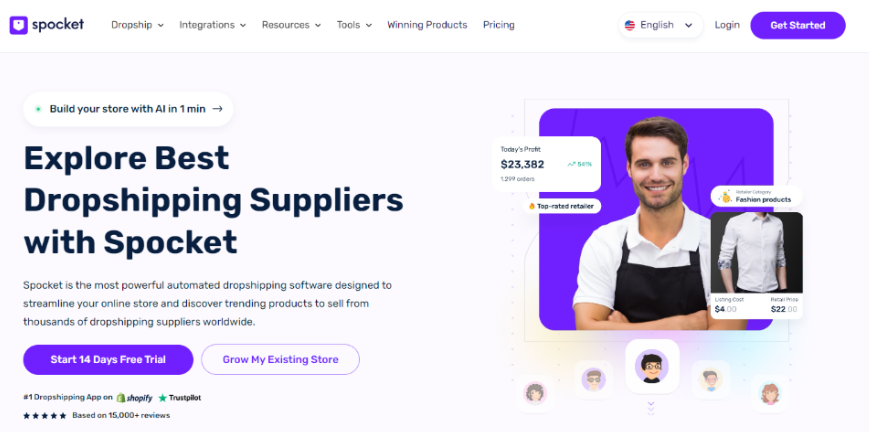
Features and benefits:
- Access to US/EU suppliers
- Branded invoicing
- Sample ordering
- Real-time inventory updates
Comparison with Oberlo: While Oberlo is primarily sourced from AliExpress, Spocket offers a curated selection of suppliers, potentially offering higher-quality products.
User experiences and reviews: Users appreciate the quality of products and faster shipping times. Some find the product selection more limited compared to AliExpress-based solutions.
Pros:
- Higher-quality products
- Faster shipping times
- Good customer service
Cons:
- More expensive than AliExpress options
- Smaller product catalog
3. Printful
Printful is a print-on-demand service that integrates with Shopify, offering a different approach to dropshipping.
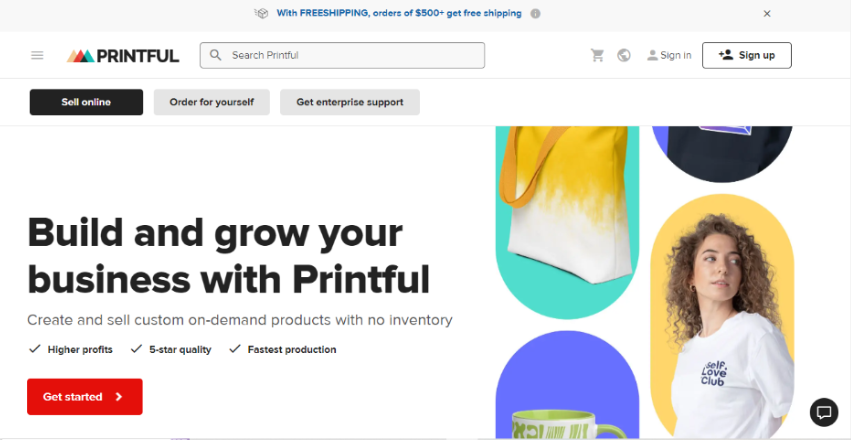
Features and benefits:
- Custom product creation
- Automated order fulfillment
- Integration with multiple sales channels
- No minimum order quantities
Comparison with Oberlo: Unlike Oberlo, Printful focuses on customizable products rather than reselling existing items. This allows for unique branding opportunities.
User experiences and reviews: Users love the quality of products and the ability to create custom designs. Some find the pricing higher compared to traditional dropshipping.
Pros:
- High-quality, customizable products
- No inventory management is required
- Excellent integration with Shopify
Cons:
- Higher costs compared to AliExpress dropshipping
- Limited to specific product types (mainly apparel and home goods)
4. Yakkyofy
Yakkyofy is an all-in-one dropshipping solution that offers sourcing from multiple countries.
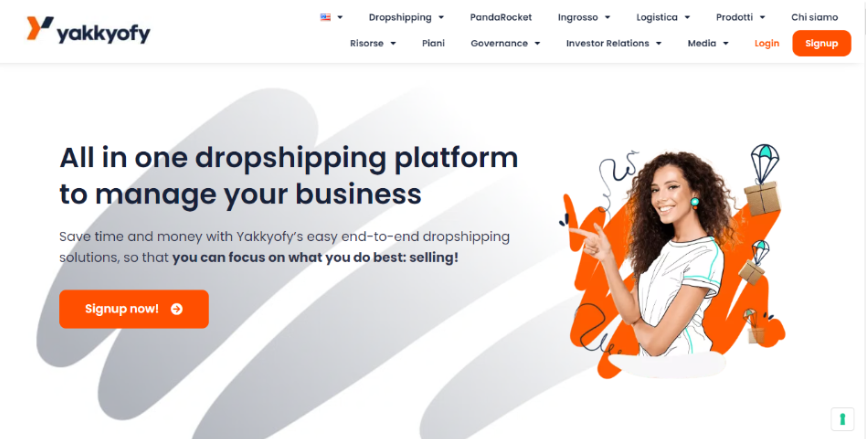
Features and benefits:
- AI-powered product research
- Automated price and stock synchronization
- Custom packaging options
- Order tracking
Comparison with Oberlo: Yakkyofy offers a wider range of sourcing options than Oberlo, including the ability to source from multiple countries.
User experiences and reviews: Users appreciate the AI-powered features and the ability to source from various countries. Some find the platform less intuitive than Oberlo.
Pros:
- AI-powered product research saves time
- Multiple sourcing options
- Custom packaging available
Cons:
- Steeper learning curve
- Pricing can be higher for some features
Related Reads:
Conclusion: Oberlo Is No Longer Available On Shopify!
The shutdown of Oberlo marked the end of an era in Shopify dropshipping, but it’s far from the end of dropshipping itself. With alternatives like DSers, Spocket, Printful, and Yakkyofy stepping up to fill the gap, Shopify store owners have more options than ever.
Each of these tools brings its own strengths to the table, from AI-powered product research to print-on-demand services.
The future of dropshipping on Shopify remains bright, with new innovations and improvements continually emerging. While the loss of Oberlo was a challenge for many, it’s also an opportunity to reassess and upgrade your dropshipping strategy.
FAQs
New dropshipping businesses must adapt by exploring alternative tools like DSers to streamline their operations.
Emerging trends include a focus on faster shipping times, more diverse product sourcing, and increased use of AI for product research and inventory management.
One-click product imports, automated order fulfillment, and real-time inventory tracking remain highly desired features.
Many alternatives like DSers and Spocket offer similar or enhanced versions of Oberlo’s key features.
You can use multiple apps, but be cautious of potential conflicts or duplicate functionality.
Compare the pricing plans of alternatives with your current expenses, factoring in any potential increases in efficiency or sales the new tool might bring.
